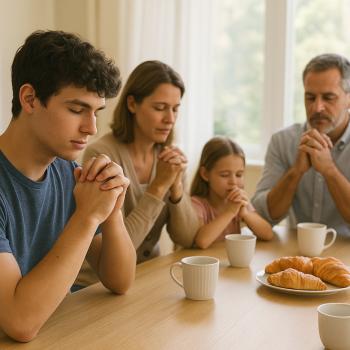Editors' Note: This article is part of the Patheos Public Square on the Future of Faith in America: Progressive Christianity. Read other perspectives here.
In an influential 1995 article, sociologist N.J. Demerath III characterized the late 20th-century fate of liberal Protestantism as "cultural victory and organizational defeat." Paradoxically, as liberal Protestant values such as freedom, tolerance, and pluralism gained ascendance in America, membership in liberal Protestant churches plummeted. Steepening declines for the mainline — a drop from 18.1 percent of the national population in 2007 to 14.7 percent in 2014, according to the Pew report — have lent additional credence to Demerath's argument. Even though progressive Christianity is not coterminous with the Protestant mainline, I expect it to follow a similar trajectory, marked by wins in the culture and losses in the churches.
First, let me say a few words about my working definition of progressive Christianity. I see it as a confluence of three streams: the modernist/liberal/mainline Protestant tradition; the small but not inconsequential evangelical left; and a more recent movement of young evangelicals who might not call themselves "liberal" but repudiate Evangelicalism's coziness with conservative politics. People from these different streams do not agree on everything. Notably, the mainline's commitment to polity and process befuddles evangelicals, who are accustomed to independent congregations, parachurch ministries, and megaphone-wielding celebrities. Perhaps the strongest tie in this amorphous grouping (which doesn't even show up in Pew's categorization) is agreement with the title of Benjamin Dixon's blog, "God Is Not a Republican."
In terms of belief, Progressive Christianity is poised to grow in coming years. According to Gallup, belief that the Bible is the literal word of God, a central tenet of Fundamentalist Christianity, fell to a near-historic-low 28 percent of Americans polled in 2014, while a view of the Bible as "an ancient book of fables, legends, history, and moral precepts recorded by man" rose to a historic high of 21 percent. Progressive Christians would be apt to choose a middle position, recognizing the Bible as open to multiple interpretations or inspired but not to be taken literally. These shifting views of the Bible coincide with a larger cultural abandonment of beliefs that conservative Christians have advanced as "biblical," including the submission of women and rejection of homosexuality. (There are countertrends, however, with belief in divine creation holding steady and denial of a human role in climate change actually rising.)
A progressive Christian approach to religious behavior is poised to grow as well, if one interprets that approach as flexibility regarding ritual and lifestyle. Want to gather at a bar instead of a sanctuary? Make the community garden your holy place? Practice yoga as your daily devotions? Worship with your spouse or partner of either sex? Broadly speaking, progressive Christians are fine with all of that, and America's growing cadre of "spiritual but not religious" (or "nothing in particular") folks are, too.
The third key category of analysis for sociologists of religion, belonging, is where I think progressive Christians will be in trouble. Note what Pew called the group that shot up from 16.1 percent of the population in 2007 to 22.8 percent in 2014: "Unaffiliated." As Robert Putnam documented in his memorably titled Bowling Alone (2000), and Sherry Turkle updated for the social media age in Alone Together (2012), Americans care less and less about belonging to any collective. A record-high 43 percent of Americans identified as political independents in 2014. Fraternal and service organizations are on life support, while trendy sites like SoulCycle and CrossFit attract passionate, but very small, coteries of the faithful.




